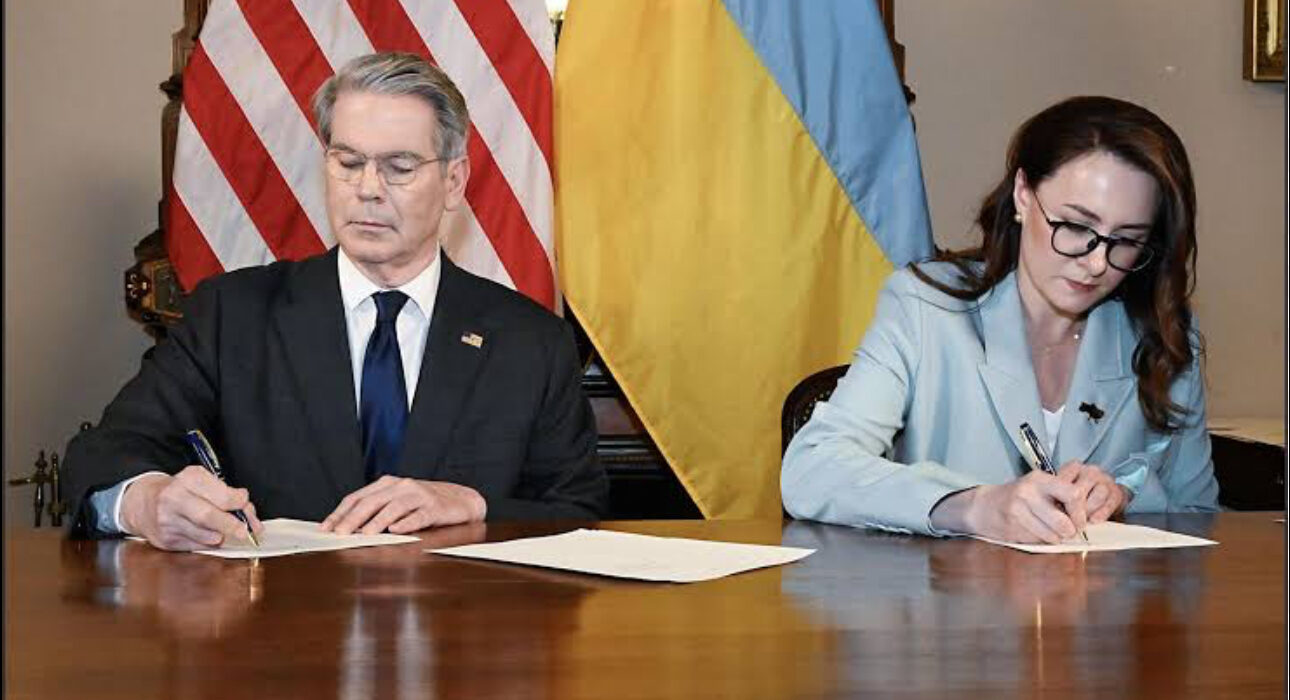U.S., Ukraine Sign Landmark Minerals Deal, Linking Trump Administration to Kyiv’s Economic Recovery

The United States and Ukraine have signed a landmark agreement to jointly develop and manage Ukraine’s critical mineral resources.
The deal, finalized on April 30, 2025, marks a significant pivot in bilateral relations and signals deeper U.S. involvement in Ukraine’s post-war reconstruction under President Donald Trump’s renewed administration.
The centerpiece of the agreement is the creation of a Joint Reconstruction Investment Fund, a co-managed initiative that channels profits from Ukraine’s state-owned mineral assets directly into rebuilding efforts, while providing the U.S. with strategic access to rare and essential raw materials such as lithium, titanium, and uranium.
Key Components of the Agreement
1. Joint Reconstruction Investment Fund
The United States and Ukraine will share control over the newly established fund, with 50% of profits from mineral operations dedicated to Ukraine’s infrastructure rebuilding.
Crucially, Ukraine retains ownership and sovereignty over all natural resources, addressing earlier concerns about foreign control.
2. Access to Critical Minerals
The U.S. will gain preferred access to Ukraine’s vast and underdeveloped mineral reserves—an important strategic win as Washington looks to reduce its dependency on Chinese and Russian suppliers in high-tech and defense sectors.
3. Military Assistance Tied to Economic Terms
In conjunction with the minerals deal, President Trump authorized a $50 million military aid package—his first such military support to Ukraine since returning to office. This follows previous demands by the Trump administration that military aid must be tied to concrete economic returns or investments.
The deal marks a turning point in the U.S.–Ukraine relationship, especially after months of stalled aid packages and contentious negotiations earlier this year.
President Trump had previously blocked military assistance to Kyiv unless Ukraine agreed to a resource-sharing deal—an approach that drew criticism at home and abroad.
The new agreement, however, reflects a compromise: Ukraine secured U.S. support without having to repay earlier military aid, while the U.S. obtained long-term economic and strategic benefits.
U.S. Treasury Secretary Scott Bessent described the agreement as a “historic economic partnership that not only supports Ukraine’s sovereignty but also benefits American industries and global supply chains.”
While Ukrainian officials welcomed the deal as a major win for national recovery and international legitimacy, critics have raised concerns about the precedent it sets.
Former Russian President Dmitry Medvedev accused the Trump administration of “forcing Ukraine to pay for weapons with its national wealth,” calling the agreement “neo-colonial.” In contrast, European and NATO officials cautiously praised the deal for its potential to stabilize Ukraine’s economy and reduce Russian influence in Eastern Europe.
Ukraine is believed to possess some of the largest untapped reserves of critical minerals in Europe, a fact that has drawn increased attention from global investors. The agreement is expected to unlock billions in foreign investment, improve infrastructure, and help rebuild cities devastated by years of war.
The Joint Reconstruction Fund is also expected to serve as a model for future post-conflict partnerships globally, blending national sovereignty with foreign investment and technical expertise.
While the agreement deepens economic cooperation, it does not include new security guarantees or NATO commitments—a key demand of President Volodymyr Zelenskyy’s administration. Nevertheless, the strategic nature of the deal is expected to reinforce Ukraine’s ties to the West and signal continued U.S. engagement.
The U.S.–Ukraine minerals deal marks a new era of pragmatic diplomacy between Kyiv and Washington. For the Trump administration, it is a transactional approach to foreign aid. For Ukraine, it is a lifeline for reconstruction and a step toward long-term economic sovereignty.
As the global demand for rare minerals surges, this agreement may reshape not just Ukraine’s economy—but the global strategic landscape.







